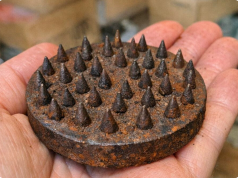The passing of a loved one is a profound moment — one that often opens the door to deep, soul-searching questions. Among the most poignant is:
What happens to the soul when the body is cremated?
As cremation becomes increasingly common — chosen for its environmental benefits, cost-effectiveness, and personal meaning — this question echoes in the hearts of the grieving, the curious, and the spiritually inclined.
While science can explain the physical process — intense heat reducing the body to ashes — the fate of the soul remains beyond the reach of instruments and formulas. It lives in the realm of faith, tradition, and belief.
Across religions and philosophies, the answer varies — but one truth remains: the soul is not bound by fire, dust, or time.
Christianity: Faith in Resurrection
Historically, many Christian denominations — especially Catholicism — favored burial, rooted in the belief in the resurrection of the body on the Last Day. Early Christians saw burial as a sign of respect for the body, created in God’s image.
However, modern Christian views have evolved. The Catholic Church lifted its ban on cremation in 1963, and today, most Christian denominations accept it — as long as it doesn’t reflect a denial of the resurrection.
“The soul is not affected by the condition of the body,”
— Catechism of the Catholic Church
In Christian belief, the soul leaves the body at death and returns to God. Whether buried or cremated, the soul’s journey continues toward eternal life, with the promise that God will raise the faithful on the last day.
Cremated remains are now often treated with reverence — kept in urns, buried in cemeteries, or placed in sacred spaces.
Islam: Sacredness of the Body and Soul
In Islam, cremation is strictly prohibited. Muslims believe the body is a trust from God and must be returned to the earth through simple, timely burial — ideally within 24 hours of death.
The soul, according to Islamic teachings, leaves the body at death but remains aware and connected to the earthly realm until the Day of Judgment. The body’s dignity must be preserved, and fire is seen as a form of desecration — a punishment reserved for the afterlife.
“We created you from dust, and We will return you to it.”
— Qur’an 20:55
For Muslims, burial is an act of faith, humility, and obedience — a final act of respect for the vessel that once carried the soul.
Hinduism: Liberation Through Fire
In Hinduism, cremation is not just accepted — it is essential.
Fire, or Agni, is a sacred purifier. The body is seen as a temporary vessel, and cremation releases the soul (atman) to continue its journey through reincarnation.
The ritual, known as Antyesti (last sacrifice), is believed to:
- Free the soul from the physical body
- Help sever attachments to the material world
- Aid the soul’s passage to the next life or, ideally, moksha — liberation from the cycle of rebirth
The ashes are often scattered in a holy river, such as the Ganges, symbolizing the soul’s return to the divine flow of existence.
For Hindus, fire is not destruction — it is transformation.
Buddhism: Impermanence and Release
Buddhism teaches that the body is impermanent, and the soul — or more accurately, consciousness — is in a continuous cycle of rebirth (samsara).
Cremation is common in Buddhist cultures, reflecting the core teaching of impermanence (anicca). The fire does not harm the soul; it simply releases it from one form to the next.
The focus is not on the body, but on the state of mind at death. Peaceful chanting and prayers are offered to guide the consciousness toward a favorable rebirth.
Cremation, in this view, is a symbolic letting go — a reminder that all things must pass.
Secular and Spiritual Views: Return to the Earth
For those who identify as spiritual but not religious, or who hold humanist or ecological beliefs, cremation is often seen as a natural return to the elements.
Some believe:
- The soul merges with the universe or becomes part of a greater consciousness.
- Consciousness dissolves with the body, and the soul lives on in memories, legacy, and love.
- Cremation honors the cycle of life and death, returning the body to the earth in a clean, simple way.
In these views, the soul’s journey is less about an afterlife and more about connection — to nature, to family, to the ongoing story of life.
A Matter of Belief — And of Comfort
Ultimately, what happens to the soul after cremation is a question each person must answer for themselves.
Is the soul:
- Liberated by fire?
- Unaffected by the body’s fate?
- Already gone, resting in God’s hands?
- Living on in the hearts of those who remember?
There is no single answer — only the one that brings peace.
And peace is what matters most.
Because whether the body is laid in the earth or returned to ash, the soul — in whatever form you believe — is not lost.
It is released.
It is remembered.
It is loved.
Final Thoughts: Cremation Is More Than a Process — It’s a Passage
Cremation is not the end.
It is a threshold.
A moment of transformation.
A final act of care.
A symbolic release.
And for the soul?
It was never in the body to begin with.
It was in the laughter, the love, the quiet moments between breaths.
And that — that can never be burned.
Wherever you believe the soul goes, may your heart find peace in the journey.






